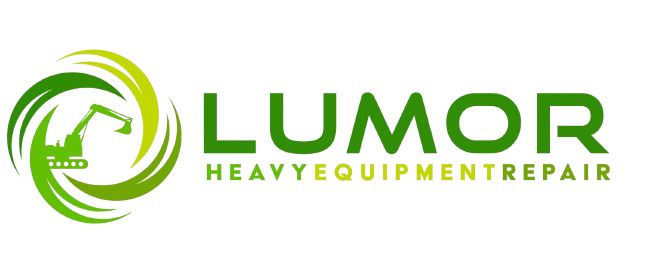Intro:
Artificial intelligence isn’t just for Silicon Valley anymore. It’s quietly making its way into construction sites, farms, and factories, and heavy equipment is one of the biggest areas of innovation.
So, what does that mean for your business? Whether you run a fleet or manage a single machine, AI is changing how equipment is built, used, and repaired. In this post, we’ll break down what’s happening, what’s coming, and how your business can stay ahead of the curve, no tech degree required.
1. Smarter Machines = Fewer Mistakes on the Job
One of the most exciting applications of AI is “machine learning,” a system that allows equipment to learn and adapt from data. For example, AI-powered bulldozers and excavators can now:
- Automatically adjust blade angle for leveling
- Monitor ground conditions in real time
- Suggest the most efficient digging path
This tech doesn’t just help reduce operator fatigue, it also helps prevent errors, saves fuel, and boosts productivity.
Takeaway: The smarter the machine, the smoother the job, and the less wear and tear your crew causes unintentionally.
2. Predictive Maintenance: Stop Problems Before They Start
Imagine getting a heads-up before your hydraulic system overheats. Or knowing that a pump is about to fail weeks in advance.
That’s where AI is really starting to shine, helping manufacturers and fleet managers predict breakdowns before they happen. These systems track vibration, temperature, pressure, and more, looking for patterns that signal trouble.
While this tech is still more common in large fleets, it’s becoming more affordable, and more common, every year.
Why it matters: If your equipment is down, you’re losing money. Predictive tools can help reduce that risk and extend the life of your machines.
3. AI-Enhanced Training for Operators
Training new operators is expensive and time-consuming, and sometimes dangerous. Now, some manufacturers are using AI to create training simulations that mimic real jobsite conditions.
These systems provide real-time feedback and help operators correct mistakes before they ever get into the cab of a live machine.
Bonus benefit: Better-trained operators lead to fewer breakdowns, which reduces your repair costs and downtime.
4. What AI Doesn’t Replace: Expert Repair and Diagnostics
While AI is changing how equipment is used, it hasn’t replaced boots-on-the-ground expertise. When a machine goes down, you still need skilled professionals who can:
- Diagnose complex issues fast
- Repair components correctly
- Ensure safety systems are fully operational
At Lumor Heavy Equipment Repair, we keep up with the latest equipment trends, but we never forget that reliability is still king.
That’s why our customers trust us: We combine today’s best tools with old-school workmanship and real-world experience.
5. Looking Ahead: Will AI Make Repairs Easier or Harder?
Good question, and the answer is both.
AI-equipped machines may help prevent more breakdowns, but when things do go wrong, they’ll often require specialized knowledge, software, or diagnostics tools.
That’s why staying current matters. Our team is constantly training on the latest systems so we can keep your fleet running, no matter how “smart” the machine gets.
Final Thoughts: Don’t Let the Future Catch You Off Guard
AI is already shaping the future of heavy equipment, but the fundamentals haven’t changed. You still need machines that work, and a partner who can keep them that way.
If you’re seeing new tech pop up in your fleet and want help understanding it, or maintaining it, we’re here to help.
👉 Need expert help with repairs, diagnostics, or general maintenance? Contact Lumor Heavy Equipment Repair today.
